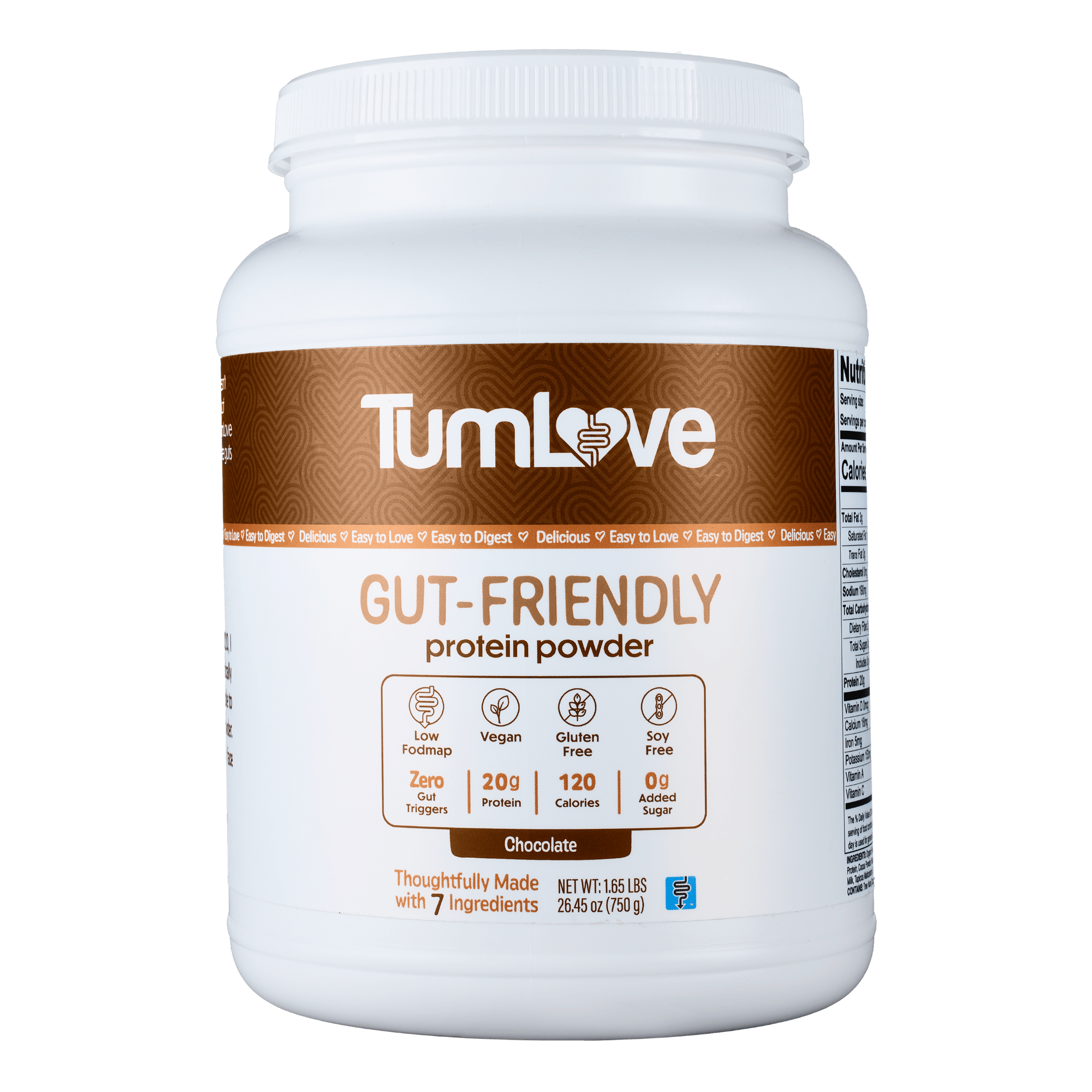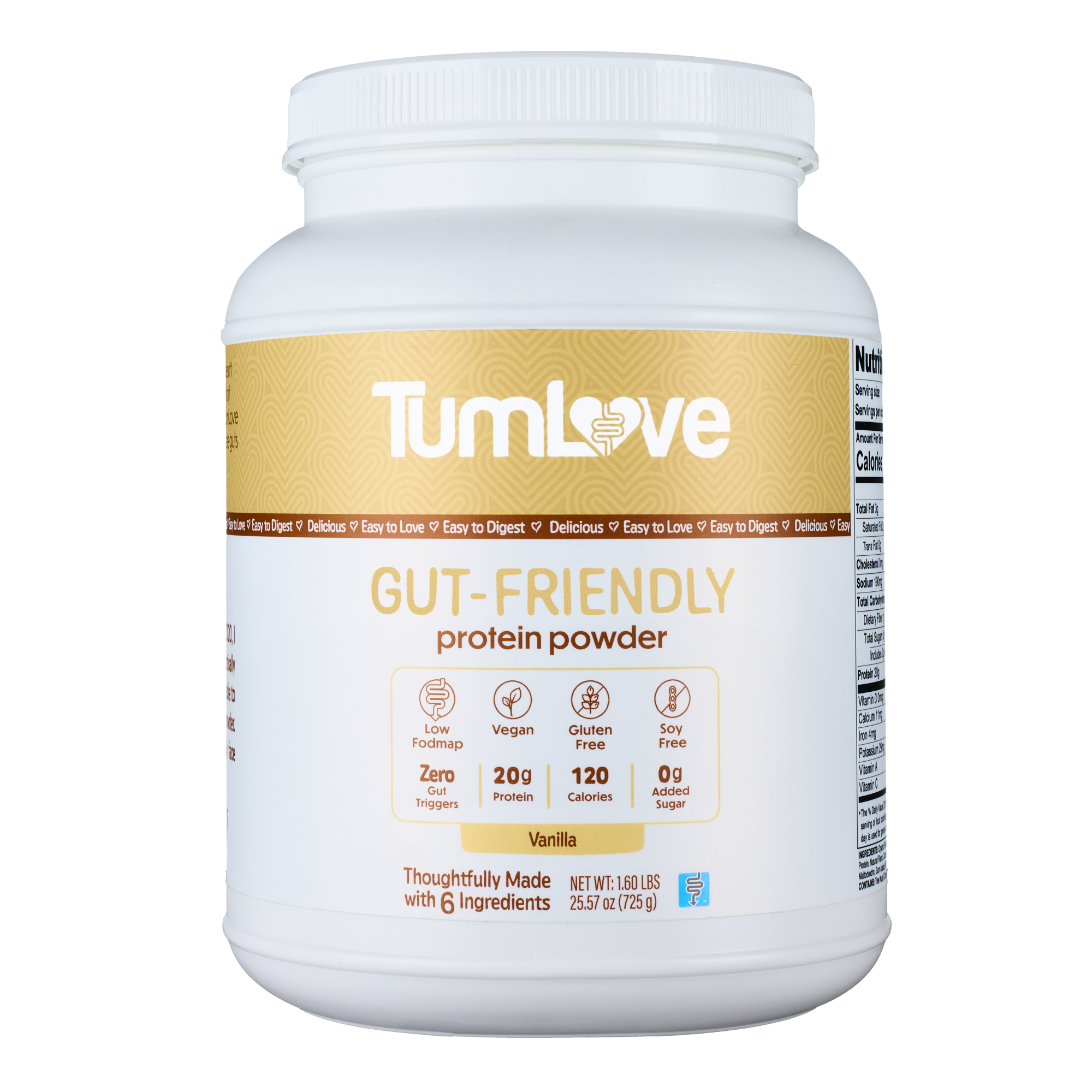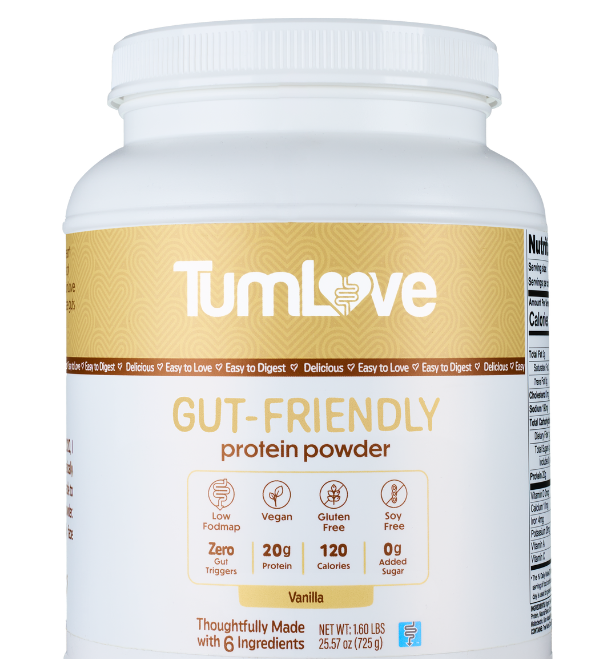Welcome to Tumlove! As we dive into the world of gut health for women, explore how our low FODMAP, vegan protein powder is a game-changer. Let's empower your wellness journey together with Tumlove!
★★★★★
"Now I can do what I love while feeling great!"
- Lileia S.
When it comes to maintaining good health, your gut plays a pivotal role. But what exactly does maintaining good gut health for women involve? From understanding the signs of poor gut health to learning about dietary changes that can enhance your gut health, this guide will empower you to take control of your digestive wellbeing.
A Closer Look at Gut Health
Your gut, also known as the digestive tract, is home to a complex ecosystem of bacteria known as the gut microbiome. This community of microorganisms plays a crucial role in your overall health by helping with digestion, nutrient absorption, immune function, and even your mood.Why Gut Health Matters for Women
Gut health is critical for everyone, but women may face unique challenges due to hormonal fluctuations throughout their lives. These fluctuations can influence gut health, affecting digestion, nutrient absorption, and susceptibility to certain gastrointestinal disorders.Role of Hormones in Gut Health
Hormones like estrogen and progesterone can affect gut health. They influence gut motility, gut sensitivity, and the gut microbiome composition. Any imbalance can lead to digestive discomfort or other health issues.Symptoms of Poor Gut Health in Women

Digestive Issues
Digestive symptoms like bloating, gas, constipation, and diarrhea can indicate poor gut health. If these symptoms persist, it's worth discussing with a healthcare provider.Unexplained Weight Changes
Unintended weight loss or gain without significant changes in your diet or exercise routine can signal an unhealthy gut. An imbalance in gut bacteria can affect how your body absorbs nutrients, regulates blood sugar, and stores fat.Constant Fatigue
An unhealthy gut may contribute to sleep disturbances such as insomnia, which can result in chronic fatigue.Skin Irritation
Skin conditions like eczema may be related to a damaged gut. Inflammation in the gut caused by a poor diet or food allergies can cause "leaky gut," leading to skin irritation.Food Intolerances
Food intolerances may result from poor quality of bacteria in the gut. This can make digesting certain foods difficult and cause symptoms such as bloating, gas, diarrhea, abdominal pain, and nausea.Improving Gut Health for Women: A Dietary Perspective

Probiotic-Rich Foods
Probiotics are beneficial bacteria that promote a healthy gut. Foods like yogurt, kefir, sauerkraut, and kimchi are rich in these helpful microorganisms.Prebiotic Foods
Prebiotics are dietary fibers that act as food for probiotics. Include foods like bananas, onions, garlic, leeks, asparagus, and oats in your diet.Foods High in Polyphenols
Polyphenols are plant compounds that are digested by your gut bacteria and promote their growth. You can find them in green tea, dark chocolate, olive oil, and certain fruits and vegetables.Healthy Proteins
Protein is an essential part of a balanced diet. For a gut-friendly option, try plant-based proteins like our Tumlove Low FODMAP Gut-Friendly Protein Powder. It's vegan, low FODMAP, and deliciously creamy.

Gut Health: Beyond the Diet
While diet plays a significant role in gut health, other lifestyle factors matter too.Stay Active
Regular physical activity promotes gut health by enhancing the diversity of your gut bacteria.Get Enough Sleep
Inadequate sleep can disrupt your gut health. Aim for 7-9 hours of quality sleep per night.Manage Stress
High-stress levels can harm your gut bacteria. Practices like yoga, meditation, and deep breathing can help manage stress.Gut Health and Women’s Health Issues
Many women's health issues, from menstrual cycles to fertility, and even menopause, are linked to gut health. Hormonal imbalances that occur during these periods can significantly affect gut health.Menstrual Cycle
Hormonal changes during the menstrual cycle can affect gut health, potentially leading to digestive issues. Eating a balanced diet and staying hydrated can help manage these changes.Fertility
Research suggests that gut health may play a role in fertility. Imbalances in the gut microbiome could impact hormonal balance and inflammation levels, which are crucial factors in fertility.Menopause
Menopause can lead to changes in the gut microbiome due to decreased estrogen levels. These changes can be managed with a balanced diet, regular exercise, and proper hydration.Additional Lifestyle Advice for Gut Health

Avoid Smoking and Limit Alcohol
Smoking and excessive alcohol consumption can disrupt your gut flora, leading to an unhealthy gut.Stay Hydrated
Water benefits your gut health by helping break down food and absorb nutrients effectively.Prevent Overuse of Antibiotics
Antibiotics can disrupt your gut flora, so use them only when necessary and under a healthcare provider's guidance.Frequently Asked Questions about Gut Health for Women
Q: How does gut health affect mood in women?
A: The gut and brain are closely connected through a network known as the gut-brain axis. An unhealthy gut can send signals to the brain that lead to mood changes, including increased risk of anxiety and depression.
Q: Can improving gut health aid in weight loss?
A: Yes, a balanced gut can help with weight management. A healthy gut helps in proper digestion, absorption of nutrients, and regulation of metabolism, all of which contribute to weight control.
Q: How long does it take to improve gut health?
A: The time it takes to improve gut health can vary from person to person and depends on various factors, including diet, lifestyle, and the current state of your gut health. Generally, with consistent healthy habits, you may start to see improvements within a few weeks.





